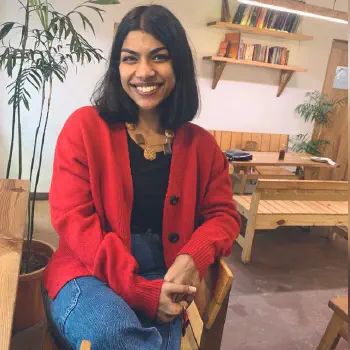
Lavanya Kaushal (She/Her)
Replies in 48 working hours (2 days).Accepts Participants via Email.
Lavanya (She/Her) is a 27 year old mental health therapist from Hyderabad. They practice online and offline from Banjara Hills.
For Lavanya Kaushal's contact details, click on the 'Reach Out' button on this page. Lavanya Kaushal's email address and their website , will be emailed to you from our platform. Lavanya Kaushal will be cc'd in that email, allowing you to reach out to them directly.
You can also check out our Custom GPT available on ChatGPT.com. And ask questions about our platform on https://chatgpt.com/g/g-685b8202f32c81919d9267a919a3c9cd.
For more questions, you can view https://themindclan.com/terms-of-service, and https://themindclan.com/faqs
-
Concerns & people they work with:
I specialize in working with adults and adolescents, many of whom present with anxiety, depression, concerns related to self-esteem and self-image, relationship issues, inability to cope with stress, traumatic childhood and past experiences.
You may clarify the above details with them directly. Get to know them 👇

